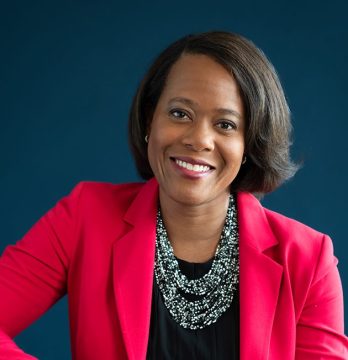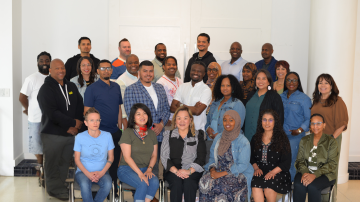Ecosystem organizations: Great resources for the region
Our region is filled with organizations that others just can’t do without. We call them Ecosystem organizations because they create the environment needed for others to solve problems in their communities. They’re recognized as go-to resources, infrastructure or intermediary organizations because they provide critical data analysis, advance public awareness and policy, spread great ideas and help build capacity or build and support leadership networks. As Ecosystem organizations, they work within and across sectors and issue areas to make the work of others better and stronger.
DATE
November 14, 2023

By Jackie Statum Allen, grantmaking director
Our region is filled with organizations that others just can’t do without. We call them Ecosystem organizations because they create the environment needed for others to solve problems in their communities. They’re recognized as go-to resources, infrastructure or intermediary organizations because they provide critical data analysis, advance public awareness and policy, spread great ideas and help build capacity or build and support leadership networks. As Ecosystem organizations, they work within and across sectors and issue areas to make the work of others better and stronger.
There are many reasons why I’m excited about our Ecosystem program and our 2023 Ecosystem organizations. One main reason is the multiplied impact their work will have for so many other organizations that rely on what they do. Investing in these organizations goes far beyond the 38 grantees we’ve selected, because these grants help them provide the support, resources and tools that enable many, many more organizations to do the work that makes our region better for everyone.
Our funding goes to investing in great ideas and the people who power them, which is important to fuel creative problem solving. This program provides operating support so that grantees have the greatest flexibility in how they make use of the funding. We’ve heard loud and clear from many nonprofit and public sector organizations that these types of flexible grants are hard to come by. Through our Ecosystem program, we’re able to recognize the unique value of these organizations and fund their work broadly.
We know problem solving is hard. I like the fact that we provide an additional $10,000 to every Ecosystem organization as capacity-building funds to improve their effectiveness to work across differences. We believe that every organization, including the Bush Foundation, has room to grow when it comes to effectively working with others. This is especially important for Ecosystem organizations since they engage and interact with so many other organizations and individuals. We provide these funds so they can work on continuous improvement to connect with diverse communities and influence others to do the same.
We’ve selected 38 Ecosystem organizations and they each provide resources, grant opportunities, leadership resources and much more. Here are a few examples:
Voices for Racial Justice is a trusted convener in the racial justice ecosystem. They help organizations and leaders across Minnesota better service BIPOC communities through more effective and productive community engagement. Each year, over 350 individuals participate in their training offerings.
Native Ways Federation promotes more equitable funding by philanthropy of Native-led and Native-serving nonprofits across our region. They raise awareness and support for the issues impacting Native communities and offer support and capacity-building programs to grow the effectiveness of Native nonprofits.
Arts South Dakota is a non-partisan organization that aims to connect South Dakota’s geographically isolated arts leaders and creatives. They provide professional development and learning opportunities specific to arts leaders and a unified voice for pro-arts policy and government support.
North Dakota State University Extension provides science-based education opportunities for adults in the state, including training for aspiring, elected and appointed leaders serving on boards, councils and committees as well as programs to strengthen the effectiveness of leaders in rural communities.
Continue reading
-

-

News
Congratulations to the 2025 Bush Fellows!
Each year, we share this joyous announcement as we celebrate the people whose bold vision and leadership are shaping communities in our region. Get to know them!
-

Note from Jen
Doing more to make our region better for everyone
At the Bush Foundation, we already had a commitment to racial equity and George Floyd’s death deepened it. We resolved to do more and do bigger.